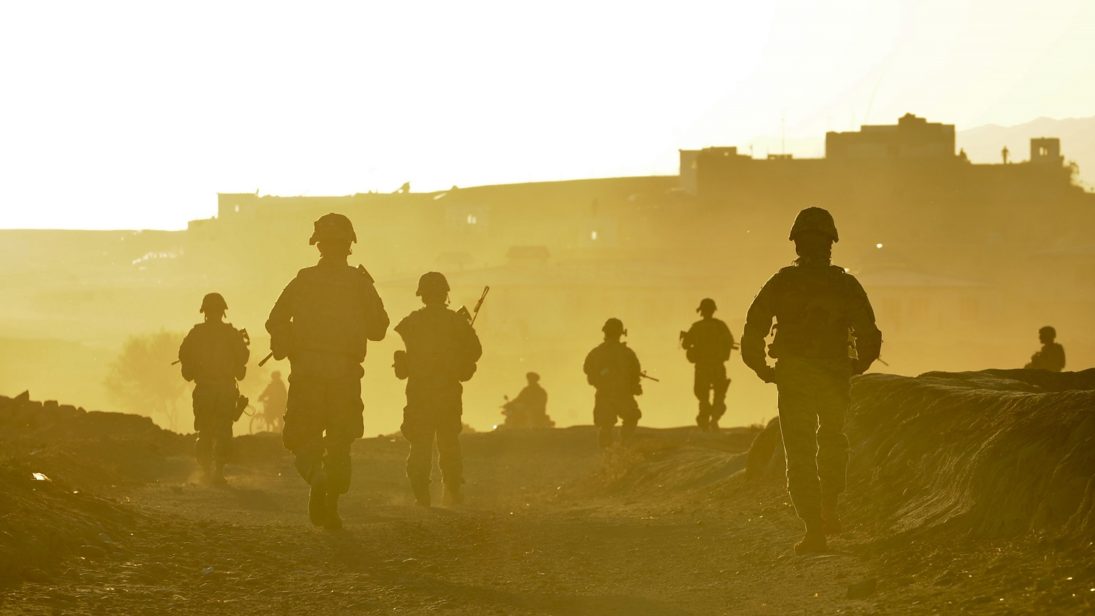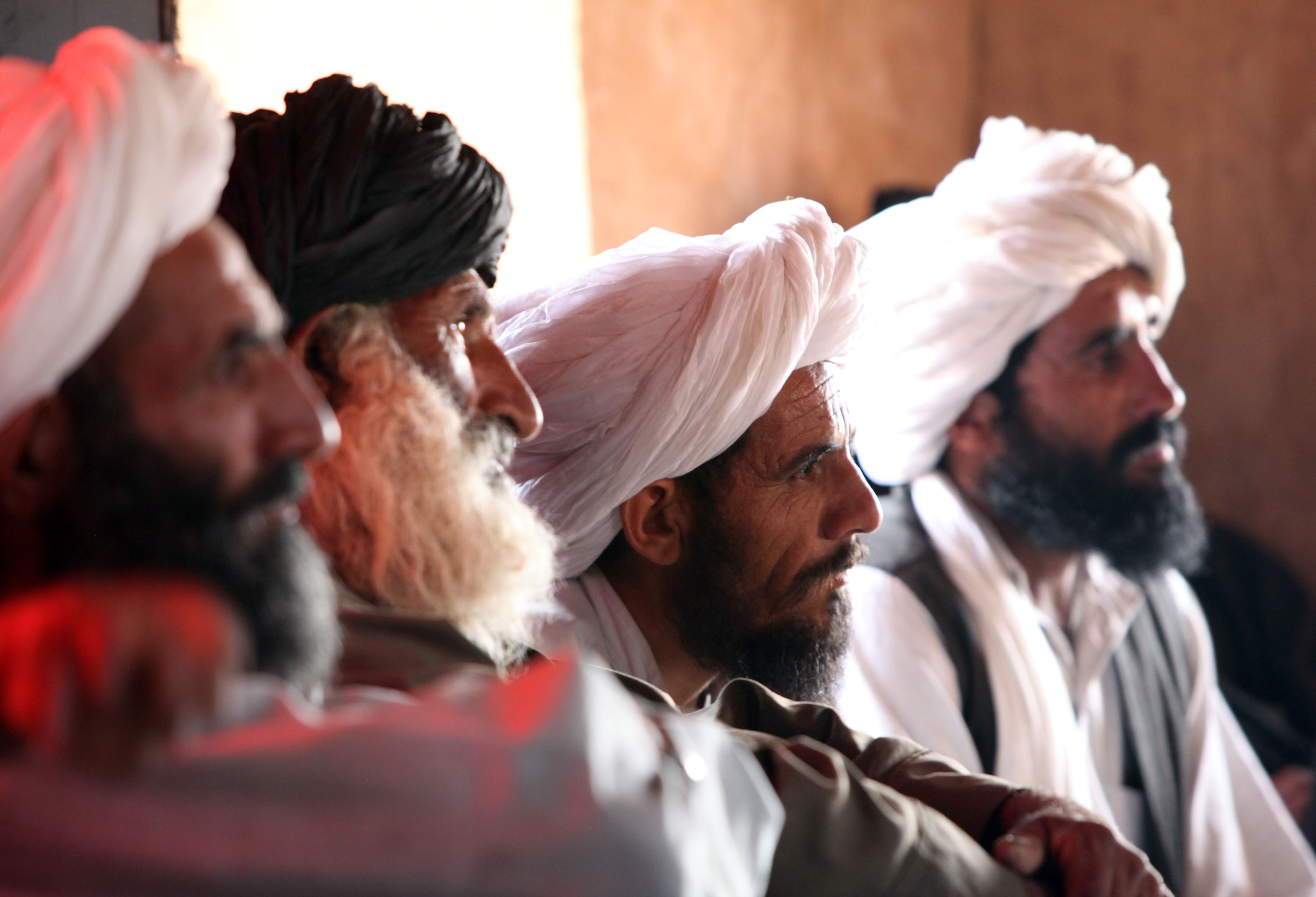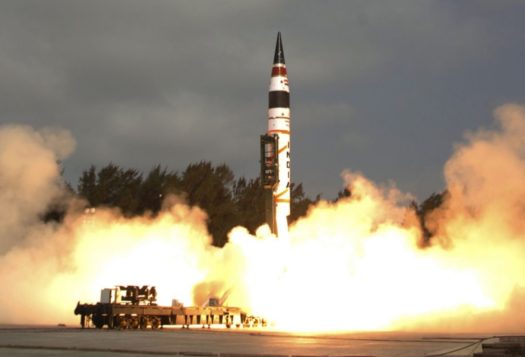
Superpowers across the course of history have all taken the gamble of attempting to dominate the strategic landscape of Afghanistan. Because of Afghanistan’s location and wealth of resources, foreign powers have often sought to establish themselves in this land-locked country. Though all have failed as of yet, this pattern has not left Afghanistan in a state of what one would normally call victory following enemy surrender. Such drawn out and failed occupation attempts in Afghanistan have unfortunately been responsible for revoking the state’s right to self-determination and have invariably silenced the voices of the Afghans wishing to determine their own fate. Unfortunately, the new Trumpian policy is not likely to be an exception to this model unless it focuses on reconciliation.
Afghan society is a complex tapestry with threads of contrasting colors; it’s made up of diverse Islamic sects, and multiple ethnicities. Trying to weave in non-indigenous patterns will only tarnish its grandeur; in fact, every such attempt in the past has led to chaos and violence. As part of their agenda to contain Russian influence, the British tried to extend their power over Afghanistan in the 19th and 20th century but were flushed out by tribal warlords. The Soviet Union’s ten years of occupation from 1979-1989 drained its coffers, its men fell victim to the Afghan guerrillas, and they were also forced to surrender. Decades later, the United States’ military intervention in 2001, which has now been in effect for close to sixteen years, does not appear to be an exception to this trend. So far, the global superpower hasn’t even been able to prop up a stable pro-American government. The U.S. intervention has already drained a trillion dollars of the taxpayer’s money and as the region remains a threat to the United States, a decisive victory does not seem likely in the foreseeable future.
Some feel Trump’s reinvigoration of troops in Afghanistan and his strategy that relies on new regional partners may lead to different results from the monotony of the last sixteen years. But this new approach fails to address the largest roadblock each foreign power has succumbed to thus far in Afghanistan: local factions. From the great British game to the Soviet occupation to the American invasion, all have tried to bulldoze the Afghans’ right to self-determination. During the British wars, the Pashtun, who were tagged “among the most miserable and brutal creatures on earth” by Churchill, pioneered the tribal resistance to push the British out. The Soviet conquest attempt resulted in a pushback from the seven-party alliance made up of tribal-mujahideen in the south, dominated by the ethnic Pashtuns, and Iran-backed factions in the north. This same phenomenon occurred once again as the American invasion was followed by the break-out of a Taliban insurgency that has again turned into a quagmire.
Factions in Afghanistan are diverse and loyalty to the local leader supersedes that to the state, rendering the central authority frail. The Pashtun-dominated Taliban and its opposition, the Northern Alliance, which was commanded by the Hazaras, Uzbeks, and Tajiks, are the most prominent of such groups. Pashtuns, the ethnic majority in Afghanistan, follow an ancient Islamic code devoted to hospitality, revenge, and honor of the tribe. From the pages of history, it is evident that coercion of the Pashtuns just by force is a futile exercise. Unless Trump considers the futility of the use of force in isolation, the threat of factional division in the form of extremism and the effectiveness of Afghan guerrilla warfare to counter foreigners will once again elongate the conflict and eventually eliminate any chance of American victory in the state.

Politics in Afghanistan is highly localized, and over the years, the Taliban has been acquiring greater territory by securing allegiance from disgruntled tribes and even collaborating with non-Pashtuns in the north like the Tajiks and Uzbeks. Under this expanding sphere of influence and authority, the Taliban has essentially become an indigenous authority; a state within a state. Any American “wipe-out” strategy that disregards this authority is problematic. The United States should instead adopt a strategy that puts weight on negotiating with the Taliban and other tribal factions to culminate a win-win scenario for both parties rather than a U.S. occupation that slowly fades out defeated. After the end of the Soviet War in Afghanistan, American diplomat Zalmay Khalilzad had asserted that “a political settlement based on Afghan self-determination serves the United States’ interests.” Such an approach is still warranted in the present context.
In his policy exposition, Trump emphasized that his strategy to win is through dominance, not nation-building. So far, however, all external military engagements in the tribal landscape of Afghanistan have rendered defeat for the superior powers. If winning for Trump means peace and stability in region and nullification of any potential threats to the United States, then reconciliation is key.
Given this roadblock, any successful Trump action plan for a stable Afghanistan will need to focus on an all-inclusive agenda with representation from different groups in the echelons of power. Because the country operates under the jurisdiction of both legitimate and illegitimate governing bodies, these groups will be crucial for successful negotiations. On this front, there has been some good news recently; the amnesty and inclusion of Gulbuddin Hekmatyar in mainstream politics seem to be a sign that leaders are going in this direction. Hekmatyar, who fought the Soviets before scrambling in the civil war to establish Kabul, is one of the faces of Afghan insurgency and his influence as a Pashtun warlord is expected to bring the Taliban to the negotiating table.
A sensible American victory, honoring the sacrifices of those in uniform, would mean ushering in an era of peace and stability in Afghanistan. To do that, reconciliation is crucial. Fighting the Taliban has been tried in multiple forms with little success. Thus, a policy that edifies Afghan reconciliation could be a “win” for the United States and pave the way for the cessation of American involvement in Afghanistan.
***
Image 1: The U.S. Army via Flickr
Image 2: U.S. Marines Photo by Cpl. Logan E. Riddle via Flickr


